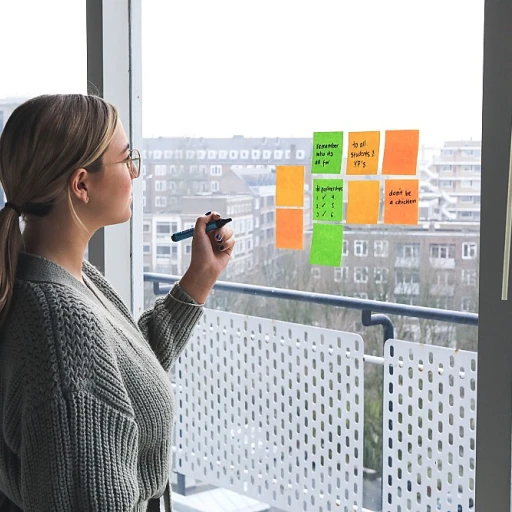
Understanding the Role of a Director
Gaining Insight into a Director's Role
When preparing for a director-level interview, it is pivotal to have a comprehensive understanding of the role's scope and expectations. This is the foundation upon which your interview questions will be built. The role of a director is multifaceted and crucial for the long-term success of an organization. Asking pertinent questions that shed light on this complexity ensures that both the interviewer and the candidate are on the same page regarding responsibilities and objectives.
Some initial questions may revolve around the director’s contribution to the management and development of the organization. This can include questions about their past experiences with project management or how they have ensured the alignment of team goals with broader company objectives. Answers to such questions not only reveal insights into their capabilities but also highlight their understanding of how a director functions within an organization.
Consider integrating questions that explore problem-solving and decision-making skills of the candidate. These inquiries provide a window into how a director manages challenges and adapts to changing circumstances. Asking about a specific example of a time when they led successful projects can be telling of their management skills and ability to foster effective collaboration among team members. This approach also helps assess their leadership style, which is a crucial aspect of this role.
Other dimensions to explore might include the director's ability to maintain open communication and involve team members in important decisions. These questions evaluate how executive directors lead and influence their teams, often requiring candidates to share an example of a past situation that reflects their aptitude in managing large teams and implementing strategic initiatives. Ensuring clear communication and alignment across all departments they oversee is key to a director’s success, making it an essential area to cover during the interview.
Key Competencies to Evaluate
Identifying Core Skills and Abilities
When searching for an individual at the director level, evaluating core competencies becomes a pivotal segment of the interview process. These competencies often encapsulate a blend of technical and soft skills that are essential for an executive director's success within the organization. Interview questions aimed at revealing these skills help in determining whether a candidate can proficiently fulfill the role.
- Project Management: The ability to oversee projects from inception to completion is crucial. Ask candidates to share an example of a project they managed, focusing on their approach to time management and project delivery to meet organizational goals.
- Decision Making and Problem Solving: It’s important for directors to make informed decisions under pressure. Consider questions that assess a candidate's past decision-making processes and their ability to implement effective solutions. An example question might be, "Can you describe a time when you had to make a significant decision with limited information?"
- Team Leadership: Effective directors inspire their teams towards achieving both short term and long term objectives. Questions can focus on the candidate’s ability to foster open communication and collaboration among team members.
- Adaptability: Ask how the candidate has previously adapted to changes within a company or industry. This not only assesses their flexibility but also highlights their capacity to thrive in dynamic environments.
Beyond the above core competencies, it’s beneficial to also reflect on diversity and inclusion, understanding their pivotal role in today’s corporate landscape. It's advisable to explore effective diversity interview questions to ensure the potential director embraces and advocates for a diverse workplace.
Behavioral Questions to Consider
Exploring Past Experiences for Insights
Behavioral questions play a crucial role in understanding how a director will perform within your organization. By asking the right questions, you can uncover valuable insights into their problem-solving skills, decision-making abilities, and how they handle challenges within a team setting. These interview questions are designed to assess past experiences and predict future performance.
Consider asking a candidate to share an example of a challenging project they managed. You want to understand their approach to project management, especially when it involves guiding team members under tight deadlines. A sample answer could highlight their strategic thinking, effective time management, and ability to ensure all team members are aligned with the project goals.
Another important area to explore is how the candidate handles decision-making under pressure. An example question is, "Can you describe a time when you had to make a difficult decision with long-term implications?" The candidate's response can reveal their ability to weigh short-term needs against long-term strategic goals within the company, a key aspect of being an effective director.
Questions that ask candidates to discuss a situation where open communication played a vital role can also be enlightening. This question evaluates their ability to foster transparent communication within the team and with executive directors. An example answer might illustrate how encouraging open dialogue helped overcome a significant challenge, leading to a successful outcome.
For more insights on gauging a candidate's potential through unique inquiries, discover the perfect fit approach in identifying versatile talents capable of thriving in diverse roles.
Assessing Cultural Fit
Ensuring Alignment with Company Values and Culture
When interviewing for a director-level role, assessing cultural fit is crucial for ensuring the candidate will mesh well with the company’s values and existing team dynamics. This involves not just determining if the candidate aligns with the organization’s vision and mission, but also if they will work effectively with team members and contribute to a positive work environment.
Start by asking open-ended questions that invite the candidate to share their experiences and views. For example, you can ask:
- "Can you provide an example of a time when you had to adapt to a new company culture? How did you ensure a successful transition?"
- "How do you incorporate feedback from team members into your management style?"
These questions assess the candidate’s perspective on feedback and adaptability, crucial traits for maintaining a harmonious workplace. Furthermore, questions that delve into the candidate’s decision-making processes can reveal how they prioritize and align their work with the company’s goals.
Remember to consider how their management style aligns with both short-term and long-term company objectives. For instance, inquire how they balance achieving immediate project goals with nurturing the long-term development of their teams.
Lastly, encourage the candidate to share an example of a work situation where they supported a team member through a challenge. This can uncover their approach to problem solving and the impact of their leadership on team growth, offering valuable insight into their fit within your organization.
Technical and Industry-Specific Questions
Technical Expertise and Industry Insights
When conducting a director-level interview, it's critical to delve into the candidate's understanding of technical aspects relating to your industry. While previous sections focus on the role of a director, key competencies, and assessing cultural fit, grasping the technical and industry-specific nuances cannot be overlooked.
Here are some targeted questions to consider:
- What industry-specific challenges have you faced, and how did you address them? This question evaluates the candidate's problem-solving skills and their ability to navigate sector-specific issues effectively.
- Can you share an example of a project where your technical expertise significantly contributed to achieving company goals? A sample answer should highlight the use of specific skills that positively impacted the team and organization's objectives.
- How do you stay updated on industry trends? This ensures the candidate’s commitment to continuous learning and their ability to implement current best practices for the benefit of your company.
It's crucial to also assess how applicants integrate their technical prowess into their management style. For example, asking about instances when they have coached team members to improve technical skills can provide insights into their leadership and mentorship abilities.
Technical knowledge should empower directors to make informed decisions that resonate with both immediate project needs and long-term strategic goals. Through this focus in your director interview, you can determine how a candidate's technical expertise aligns with your company's mission and vision, setting the stage for impactful leadership.













